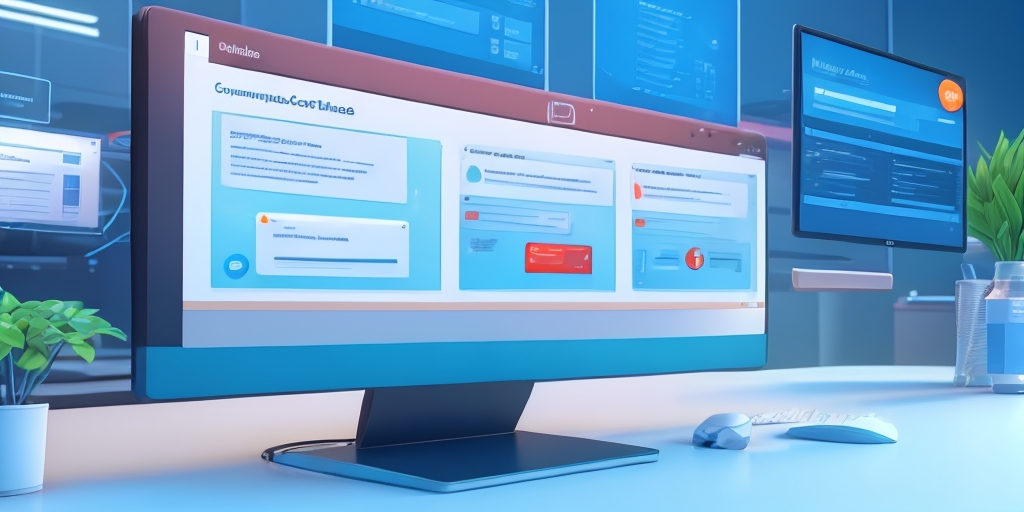Navigating the World of Local SEO: Tools and Tactics for Success
I am a creative and analytical person who enjoys problem-solving and finding creative solutions. I am driven by curiosity and a passion for learning, and take initiative to explore and understand new concepts. I am a great communicator and collaborate well with others, and am always looking for opportunities to improve myself and my team.
Navigating the World of Local SEO: Tools and Tactics for Success
Understanding Local SEO

Local SEO, or Local Search Engine Optimization, is a digital marketing strategy that helps businesses increase their visibility in local search results on search engines like Google. It's all about optimizing your online presence to attract more business from relevant local searches. These searches take place on Google and other search engines. People search for local businesses using various search engines… Google, Bing, Yelp, Apple Maps, etc.
But why is local SEO so important? Well, consider this: 46% of all Google searches are looking for local information (Source: GoGulf). That's almost half of all searches! If your business isn't optimized for local search, you could be missing out on a significant number of potential customers.
The Power of Local SEO
Local SEO can offer numerous benefits for businesses, especially those with a physical location or those serving a specific geographic area. Here are a few key benefits:
- Increased Visibility: Local SEO can help your business appear in local search results, increasing your visibility and making it easier for potential customers to find you.
- Targeted Traffic: By appearing in local search results, you're reaching people who are actively searching for your products or services in your area. This means you're attracting highly targeted traffic to your website.
- Increased Engagement: Local SEO can also increase customer engagement. By providing relevant information about your business (like hours of operation, location, and reviews), you're giving potential customers what they need to engage with your business.
Imagine this scenario: A family just moved to your city and they're looking for a local bakery. They do a quick Google search and find your business listed in the local search results. They see your positive reviews, your convenient location, and your mouth-watering photos of freshly baked bread. Before you know it, they're walking through your door, ready to become regular customers. That's the power of local SEO!
Now that we've covered the basics of local SEO and its potential benefits, you might be wondering: "How can I optimize my business for local search?" Stay tuned, as we're about to dive into the different tactics used in local SEO in the next section.
Local SEO Tactics: What Works?
Ever wondered what tactics work best for local SEO? Let's dive in and explore the different strategies that can help your business stand out in local search results. From optimizing meta data to creating specific pages for each product, service, and location, there's a lot you can do to boost your local SEO.
Optimizing Your Website for Local SEO
First and foremost, your website needs to be optimized for local SEO. This includes your homepage, product pages, and even your blog posts. Here are some top ways to do this:
- Homepage Optimization: Make sure your homepage clearly states your business name, location, and the services or products you offer. This information should be easily visible to both visitors and search engines.
- Local Business Schema: This is a type of structured data markup that helps search engines understand your business and its offerings. It can include information like your business name, location, hours, and reviews.
For example, a local bakery in New York might have a homepage that clearly states "Freshly baked goods in New York City" and uses local business schema to provide additional details like their address and opening hours.
The Role of Google My Business

Another crucial aspect of local SEO is Google My Business. This free tool allows you to claim your business listing on Google, making it easier for customers to find you in local search results and on Google Maps.
Once you've claimed your listing, it's important to optimize it. This means providing accurate and up-to-date information, adding high-quality photos, and encouraging customers to leave reviews. According to a study by BrightLocal, businesses that claim their Google My Business listing and actively manage it get 7x more clicks than those that don't.
As Bill Gates once said, "If your business is not on the internet, then your business will be out of business." This couldn't be more true when it comes to local SEO. By optimizing your website and leveraging tools like Google My Business, you can make your business more visible to customers in your local area.
But what about SEO tactics that go beyond local optimization? Stay tuned for the next section where we'll discuss effective SEO strategies that can further boost your online visibility. Can you guess what the most effective SEO tactic is? You might be surprised!
Effective SEO Tactics: Beyond the Local
While local SEO is crucial for businesses with a physical location or serving a specific geographic area, it's not the only game in town. There are a plethora of other SEO tactics that can help your website rank higher in search results, drive more traffic, and ultimately, increase conversions. Let's explore some of these tactics that go beyond local optimization.
Imagine this: You've optimized your website for local search, but you're still not seeing the results you want. What could be the problem? The answer might lie in the broader aspects of SEO. As Bill Gates once said, "Content is king." This quote is as relevant today as it was when he said it in 1996. High-quality content, relevant keywords, and user-friendly website design are all crucial elements of a successful SEO strategy.
On-Page SEO Techniques
On-page SEO refers to the practice of optimizing individual web pages in order to rank higher and earn more relevant traffic in search engines. This includes both the content that is visible to users and the HTML source code that is not. Here are some key on-page SEO techniques:
- Website Navigation: A well-structured, easy-to-navigate website not only improves user experience but also makes it easier for search engines to crawl and index your site. For example, a website with a clear, intuitive menu and a sitemap can help both users and search engines find what they're looking for quickly and easily.
- Content Organization: Organizing your content in a logical way is not only good for SEO, it can also help visitors on your website find other related content easily. This can lead to a higher dwell time on your site, which can positively impact your SEO rankings. For instance, you could group related blog posts into categories or create a series of related articles.
- Social Media Sharing Buttons: Including social media sharing buttons on your website can help increase the visibility of your content. When your content is shared on social media, it can generate social signals that can potentially boost your SEO rankings. For example, a blog post with numerous shares on Facebook or Twitter may rank higher in search results than a similar post with fewer shares.
These are just a few examples of on-page SEO techniques. There are many more, and the best approach often depends on your specific business and website.
Now that we've covered some of the most effective SEO tactics that go beyond local optimization, you might be wondering: How can I dominate local SEO? Stay tuned for the next section, where we'll provide a step-by-step guide on how to do just that. Are you ready to take your local SEO game to the next level?
Dominating Local SEO: A Step-by-Step Guide
So, you've got a handle on what local SEO is and why it's important. But how do you go from understanding to dominating? Let's break it down step by step.
Creating a Robust Library of Local Content
First things first, you need to create a robust library of local content. This means producing content that is relevant to your local audience and includes local keywords. For example, if you're a bakery in Boston, you might write blog posts about the best places to have brunch in the city, or the history of Boston cream pie.
Why is this important? Because Google loves fresh, relevant content. The more you can provide, the better your chances of ranking high in local search results. In fact, a study by Search Engine Watch found that businesses with a strong content strategy have a 434% higher chance of being ranked highly on search engines.
Remember, content isn't just about text. It can also include images, videos, infographics, and more. The key is to make sure it's all relevant to your local audience and optimized with local keywords.
Leveraging Local Structured Data Markup
Next, you need to leverage local structured data markup. This is a type of code that you add to your website to help search engines understand more about your business, like your address, hours, and reviews.
According to a study by Searchmetrics, pages with structured data rank an average of four positions higher in search results. So, it's definitely worth taking the time to implement.
Here's a simple example of what local structured data markup might look like for a bakery in Boston:
<script type="application/ld+json">{ "@context": "http://schema.org", "@type": "Bakery", "name": "Boston Bakery", "address": { "@type": "PostalAddress", "streetAddress": "123 Main St", "addressLocality": "Boston", "addressRegion": "MA", "postalCode": "02116" }, "openingHours": "Mo-Sa 07:00-19:00", "telephone": "+18001234567"}</script>
By adding this code to your website, you're giving search engines more information to understand your business and rank it appropriately in local search results.
As the famous saying goes, "The best place to hide a dead body is the second page of Google search results." So, let's not let that happen to your business. Ready to dive deeper into the world of local SEO? Stay tuned for the next section where we'll discuss the resources that can help you succeed.
Resources for Success in Local SEO

Now that we've covered the basics of local SEO and how to implement it, let's explore some resources that can help you succeed in this area. Whether you're looking for tools, guides, or expert advice, there's a wealth of information out there to help you navigate the world of local SEO.
Top Tools for Local SEO
There are numerous tools available that can make your local SEO efforts more effective. Here are a few of the top ones:
- Keyword Research Tools: Tools like Google Keyword Planner and SEMrush can help you find the right keywords to target in your local SEO efforts. They provide insights into search volume, competition, and even suggest related keywords.
- Local Citation Finders: Tools such as Moz Local and Whitespark can help you find and manage your local citations, which are crucial for local SEO. They can help you identify where your business is listed, where it isn't, and where you might have incorrect or inconsistent information.
- Google My Business Optimization Tools: Tools like BrightLocal can help you optimize your Google My Business listing, a key component of local SEO. They can help you track your rankings, monitor your reviews, and more.
Remember, these tools are just a starting point. There are many other resources available that can help you succeed in local SEO.
Expert Advice on Local SEO
Along with the right tools, getting advice from experts in the field can be incredibly valuable. Here are a few tips from industry leaders:
- Focus on Reviews: According to a study by BrightLocal, 85% of consumers trust online reviews as much as personal recommendations. Encourage your customers to leave reviews, respond to them promptly, and take their feedback into account.
- Optimize for Mobile: Google's Mobile-First Indexing means that the mobile version of your website is considered the primary version. Ensure your site is mobile-friendly to improve your local SEO.
- Use Local Keywords: Incorporate local keywords into your content. For example, instead of just using "pizza restaurant," use "pizza restaurant in [your city]."
These are just a few pieces of expert advice. There are countless case studies and success stories out there that can provide further insights into local SEO.
Ready to dive deeper into the world of local SEO? Stay tuned for our next section, where we'll discuss how to stay ahead in the local SEO game. What are the latest trends in SEO? How can you continuously optimize your local SEO strategy? We'll answer these questions and more in the next part.
Staying Ahead in the Local SEO Game

As the digital landscape continues to evolve, so does the world of local SEO. It's not enough to simply set up your strategies and forget about them. To truly succeed, businesses need to stay ahead of the game, keeping up with the latest trends and continuously optimizing their strategies. Let's delve into how you can do just that.
Keeping Up with SEO Trends
SEO is a dynamic field, with search engine algorithms and best practices constantly changing. It's crucial for businesses to stay updated with these changes to maintain their competitive edge. For instance, Google's recent focus on mobile-first indexing means that businesses need to ensure their websites are mobile-friendly to rank well in local search results.
There are several ways to keep up with SEO trends. Subscribing to SEO newsletters, following industry leaders on social media, and attending webinars or conferences are all effective methods. For example, Moz's "Whiteboard Friday" is a popular resource that provides weekly insights into the latest SEO trends and strategies.
Continuous Optimization for Local SEO
Local SEO isn't a one-and-done deal. It requires continuous optimization to stay relevant and effective. This means regularly updating your website, refining your keyword strategy, and monitoring your performance.
For instance, you might find that a certain keyword isn't driving as much traffic as you'd like. In this case, you could conduct new keyword research to find more effective alternatives. Or, if you notice that your Google My Business listing isn't attracting many views, you might update your photos or reviews to make it more appealing.
Tools like Google Analytics and SEMrush can be invaluable for monitoring your performance and identifying areas for improvement. They provide detailed data on your website's traffic, user behavior, and more, helping you make informed decisions about your local SEO strategy.
Wrapping Up
In conclusion, staying ahead in the local SEO game requires a proactive approach. By keeping up with the latest trends and continuously optimizing your strategies, you can ensure that your business remains visible and competitive in local search results.
Remember, local SEO is a long-term investment. It might take some time to see results, but the benefits - increased visibility, more engaged customers, and ultimately, more sales - are well worth the effort. So start implementing these tactics today, and watch your local SEO success grow.



.jpg)
.jpg)

.jpg)
.jpg_nowm_1260.jpg)